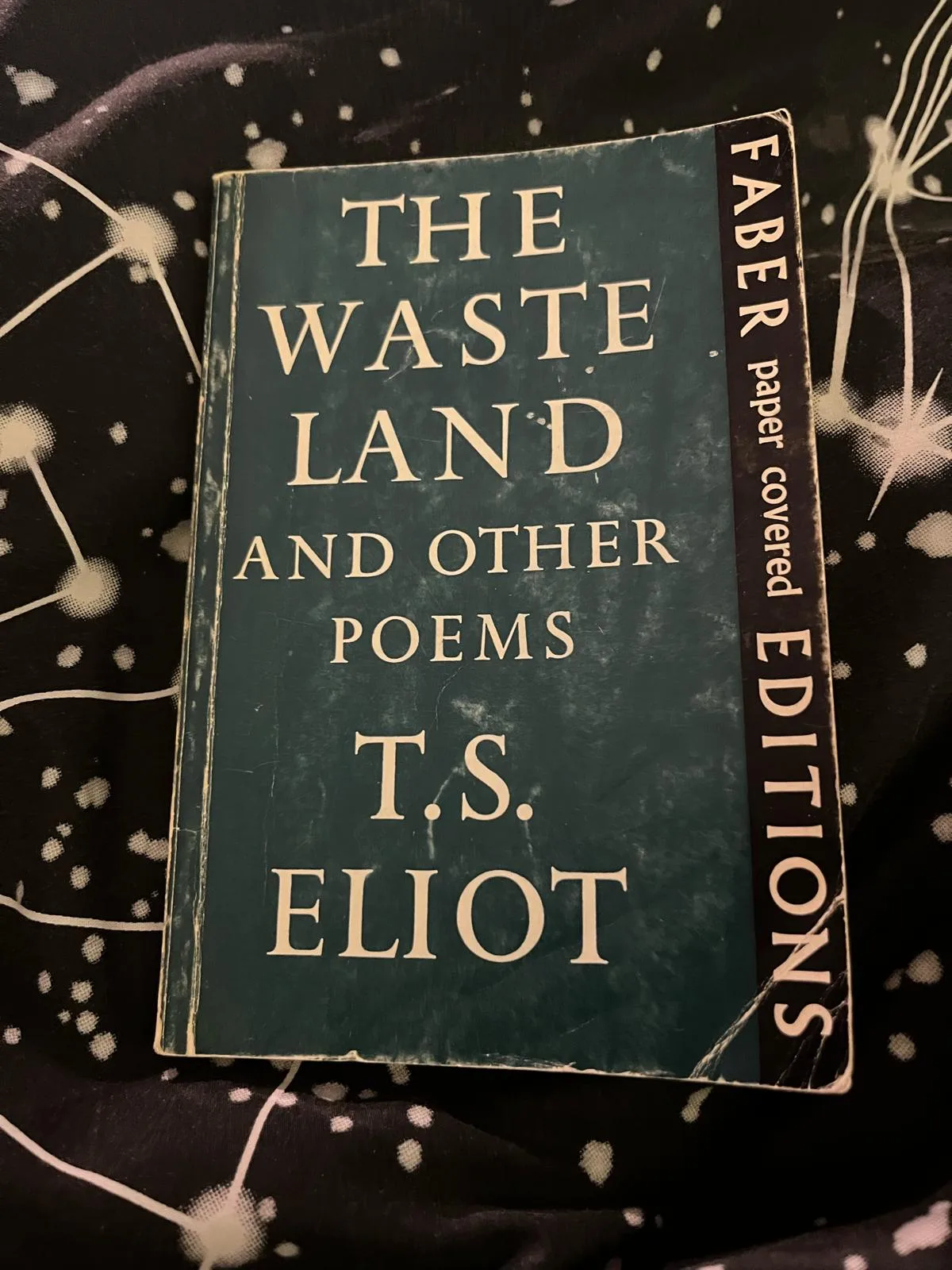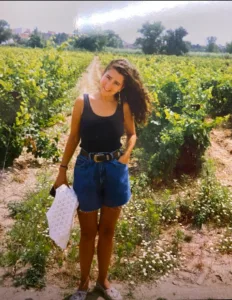T.S. Eliot’s, The Waste Land and Other Poems was given to me when I was ill in hospital, aged eighteen. A friend’s mother thought I’d like it, slotted in a bundle along with three Barbara Pym books and her annotated copy of a Jean Rhys novel. If I’m honest I’d not read much poetry before, but those hours that I spent alone, weak, reading and rereading The Love Song of J. Alfred Prufrock altered me.
I won’t even pretend that I know anything about the Modernist movement, no one seems to be able to offer a nice neat definition. And I can’t begin to truly understand the movement and possibly I like it that way, possibly I don’t like when poetry is dissected and analysed and we’re told what to see and what to think.
For me, in hospital, reading about Prufrock was about my trying to find a personal connection with him, with Eliot. I’d never read anything like it, that sense of pushing boundaries, of being different and of having something to say leapt from the pages.
The Waste Land and Other Poems was written between the years 1909-1935 and published in 1940. For the Eliot who wrote Prufrock the fabric of his society was changing, his aesthetic approach to writing delivered observation on modern society and the loss of individuality. Those two themes nodded to the inner-angst that my teenage self was exploring, even now I find myself whispering lines from the poem and chuckling at how relevant they remain.
Perhaps that’s it. I’ve read other poetry once or twice since, I’ve read this collection once a year since. Eliot had something relevant to say, he spoke at a time when I felt that I was an outsider, needing someone to understand, on the brink of adulthood. I admired him, I admire him. I’d have liked to have taken him out for tea and cake.
For me, the absolute genius of The Love Song of J. Alfred Prufrock is that it is rich with imagery and symbolism. The title suggests that the poem will be about love, I think it is. Not in a red roses and pink hearts kind of way, but rather that love of self. In Prufrock’s case it’s true to say that his love story is a sad one, all about the inner torture of loneliness.
When I was given a copy I’d just left school, been studying classical tragic heroes such as Macbeth, so reading about Prufrock delivered a contemporary figure. He was mock heroic, he was juxtaposed with the great and the glorious, he was someone who didn’t quite belong. At that time, he was possibly the kind of man I’d have wanted to date and make better. Thankfully, I outgrew that phase.
Maybe this collection, that specific poem is so important to me because it takes me back to that specific time. That time when I had silence and space and loneliness, to that time when I identified with Prufrock. He seemed to be living on the outskirts of society, too intimidated to step in, he was invisible, he was mocked, he was never really heard. He was a man who spoke of ‘if only’, someone denied half his life – if only he had taken a different path, if only he had made better decisions, if only he had been braver.
Perhaps when you’re eighteen, ill and considering your future, reading about a man filled with ‘if only’ clicks something within. Because, ultimately, Prufrock’s love song is his tragedy, his love song will never be sung in the real world. That fear of being insignificant and invisible still haunts, I wonder if Eliot felt it. I wonder if anyone ever asked him.
But what is clear, to me, in The Love Song of J. Alfred Prufrock is that sense of urban hell being ageless. Prufrock talks about walking into a room and voices dying, I guess we’d be told to believe this shows his sense of intimidation and lacking sense of self-worth, but for me it’s a comment on those who surround him.
Alongside the ritualistic measuring of his life ‘with coffee spoons’ and the imagery of being ‘pinned and wriggling’ against a wall, I still connect with the resignation in Prufrock’s discomfort with modern society. Maybe some will read The Love Song of J. Alfred Prufrock and laugh at his timidity, I never did.
Maybe some will laugh before their realisation that Prufrock had no hope, that he would not succeed, that he had failed in his life. But what I’m left with is a feeling that Prufrock desired an escape from the triviality of daily life; to connect with another human being. I wonder how relevant this is to many others. I wonder if I can suggest that The Love Song of J. Alfred Prufrock made me better.
There is so much more that could and has been said about this poem, about this collection, most definitely by people who understand the subtleties of poetry far better than I do. But I’m happy sitting in my own bubble, rereading The Waste Land and Other Poems with a cup of tea and a slice of cake. I’m growing old and, of course, I’m wearing the bottoms of my trousers rolled.

